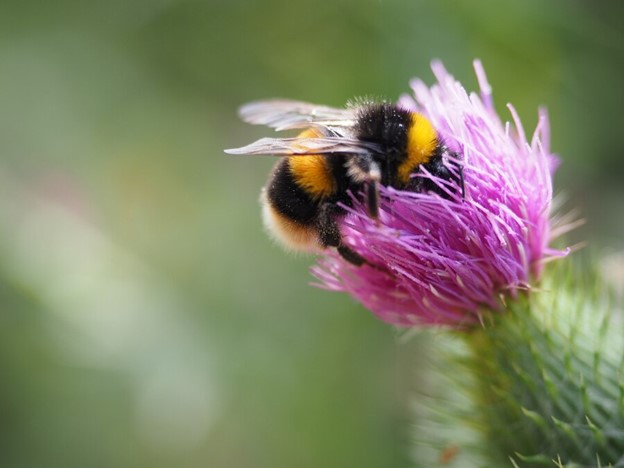
Bees play a crucial role in maintaining our ecosystem and food supply. Many of the fruits, vegetables, and nuts we enjoy would become scarce without them. Protecting bee populations is not just an environmental concern but a matter of global food security.
The Importance of Preserving Bee Populations
Bees play a crucial role in pollinating a vast array of plants, including many fruits and vegetables that form the cornerstone of our diets, making them vital for agricultural productivity and food diversity. Their decline would increase food prices and limit the variety of nutrients available, affecting global health and the economy. Protecting bee populations is essential for maintaining ecosystem balance and monitoring environmental health, as their presence reflects the well-being of our natural world.
Create Natural Habitats in Your Garden
Allow your lawn to grow a little longer and leave wildflowers blooming, creating a more diverse habitat supporting bee populations. Avoid the overly manicured look that can turn your garden into a “bee desert” devoid of necessary flora. Establish patches of untouched gardens where native plants can thrive, offering bees vital nesting and foraging opportunities. These small changes in your garden care can significantly boost local bee health and diversity.
Grow a Variety of Flowers
To ensure bees have a continuous food supply, plant various flowering plants that bloom in different seasons. Native plants are particularly beneficial as they adapt well to local conditions and effectively support native bee species. Include flowering herbs such as lavender, rosemary, and thyme, which are attractive and excellent sources of nourishment for bees. This variety will help sustain bee colonies all year round.
Preserve and Create Bee-Friendly Habitats
Preserving natural habitats like meadows, hedgerows, and woodlands is vital for bee survival. These environments offer abundant plants and nesting sites. If space allows, dedicate a part of your land to these environments. Planting bee-friendly flora in window boxes, balconies, or community gardens can make a difference in urban settings. Every patch of vegetation can serve as a sanctuary for bees, enhancing urban biodiversity.
Beekeeping as a Business Opportunity
Starting a beekeeping business provides dual benefits: it supports bee conservation and fuels local economies. By managing hives, you can offer vital pollination services to local farmers through hive rentals or sales, directly enhancing crop yields and food production. Moreover, beekeeping allows you to harvest and sell valuable bee-derived products such as honey,
honeycomb, and beeswax, creating a profitable revenue stream. This venture not only helps sustain bee populations but also taps into the growing market for natural products.
Support Local Beekeepers
Buying locally produced honey and other bee products supports beekeepers in your area. This, in turn, helps maintain bee populations and promotes sustainable practices. Local honey is often fresher and more environmentally friendly, as it doesn’t require long-distance transportation. Supporting local beekeepers ensures that they can continue their vital work of maintaining healthy bee colonies. You invest in your community’s environmental and economic health by choosing local products.
Choose Organic Produce
Choosing organic produce supports farming practices that are safer for bees by avoiding harmful pesticides, like neonicotinoids, known to contribute to bee declines. Organic agriculture enhances biodiversity and soil health, fostering a healthier farming ecosystem. Your purchasing decisions at the grocery store can promote a market for organic, pesticide-free products. By opting for organic, you play a role in protecting bees and enhancing agricultural sustainability.
Protecting bee populations requires a collective effort, from individual actions in our gardens to supporting broader conservation policies. By creating natural habitats, growing diverse flowers, starting beekeeping ventures, and making informed consumer choices, you can contribute to the survival and prosperity of these essential pollinators. Every step to protect bees is toward a healthier, more sustainable world.




Comment here